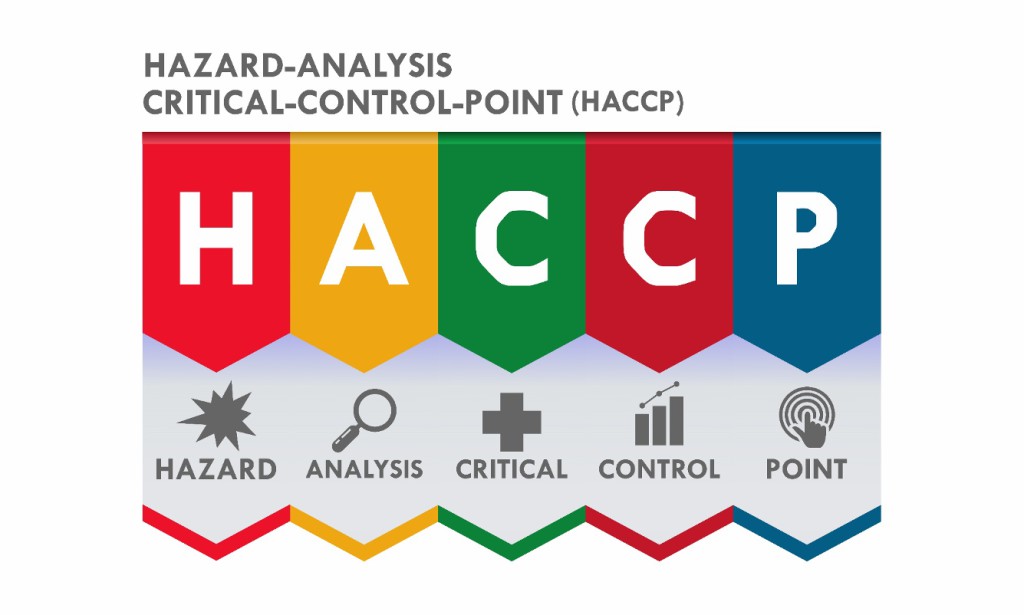Introduction: Why HACCP Certification is a Must for Food Safety Compliance
In the bustling food industry across Ireland, from Dublin to Belfast, ensuring the safety and quality of food is paramount. The Hazard Analysis Critical Control Point (HACCP) system is a structured approach to food safety. HACCP training is essential for food businesses aiming for compliance with Irish and EU food safety regulations. This blog post will delve into the importance of HACCP certification in preventing foodborne illnesses and enhancing hygiene standards across major cities like Cork, Galway, Limerick, and Waterford.
What is HACCP? Understanding the Core Principles
HACCP stands for Hazard Analysis Critical Control Point. It is a systematic preventive approach that identifies, evaluates, and controls food safety hazards. The core principles of HACCP include:
- Conduct a hazard analysis - Identify potential hazards that could impact food safety.
- Determine critical control points (CCPs) - Points in the process where hazards can be prevented or eliminated.
- Establish critical limits - Limits that must be met to ensure each CCP is under control.
- Monitor CCPs - Regular monitoring to ensure that critical limits are maintained.
- Establish corrective actions - Procedures for addressing deviations from critical limits.
- Verification procedures - Ensure that the HACCP system is functioning effectively.
- Record-keeping and documentation - Maintain records of monitoring, corrective actions, and verification activities.
HACCP Training Benefits: How It Improves Food Safety in Ireland
Investing in HACCP training offers numerous benefits for food businesses, including:
- Legal Compliance - HACCP training helps businesses adhere to Irish and EU food safety laws, reducing the risk of non-compliance.
- Reducing Foodborne Illnesses - Proper implementation of HACCP controls can significantly lower the incidence of foodborne diseases.
- Improved Hygiene Standards - Training reinforces the importance of hygiene practices among staff, leading to enhanced food safety.
- Increased Customer Trust - HACCP certification can improve customer confidence in your food safety practices, boosting your business's reputation.
- Operational Efficiency - By streamlining processes and minimizing waste, businesses can operate more effectively and economically.
How to Get HACCP Certified: A Step-by-Step Guide for Food Businesses
Achieving HACCP certification involves the following steps:
- Enrol in an accredited HACCP training course - Choose between online or in-person training tailored for your specific business needs.
- Conduct a thorough hazard analysis - Assess your food handling and processing to identify potential hazards.
- Develop your HACCP plan - Document your HACCP system, detailing all processes, procedures, and controls.
- Implement the HACCP plan - Train your staff about their roles in the HACCP system.
- Conduct regular audits and reviews - Regularly check compliance with the HACCP procedures to ensure effectiveness.
- Apply for HACCP Certification - Choose a certifying body and submit the required documentation.
Comparing Online vs. In-Person HACCP Training Courses
Both online HACCP training and in-person courses have their unique advantages:
- Online HACCP Training: Flexible, cost-effective, and can be accessed anytime, making it ideal for busy professionals.
- In-Person HACCP Training: Provides hands-on experience and immediate interaction with trainers, ideal for team-building and practical learning.
Common HACCP Violations and How to Avoid Them
Understanding frequent pitfalls in HACCP compliance can help businesses avoid costly mistakes.
- Inadequate training: Ensure all food handlers receive proper HACCP training.
- Lack of documentation: Keep thorough records of all training sessions, audits, and corrective actions.
- Poor monitoring of CCPs: Establish robust monitoring processes to ensure compliance.
How HACCP Compliance Enhances Business Reputation and Customer Confidence
Achieving HACCP compliance not only fulfills legal obligations but also positions your business as a leader in food safety. Customers are increasingly conscious about where their food comes from and how it is handled. A HACCP certification is a mark of quality that can differentiate your business in the competitive market of Irish cities like Dublin and Cork.
Conclusion & Call to Action
In conclusion, HACCP training is not just a regulatory requirement; it is an investment in the future of your food business. By embracing HACCP principles, you can ensure food safety compliance, protect your customers, and build trust in your brand. If you are ready to enhance your food safety practices, explore our HACCP training courses tailored for restaurant owners, catering professionals, and food manufacturers across Ireland.



 349,500 Offered Certificates
349,500 Offered Certificates
 24/7 Online Training
24/7 Online Training
 Money Back Guarantee
Money Back Guarantee
 Fully Accredited Courses
Fully Accredited Courses
